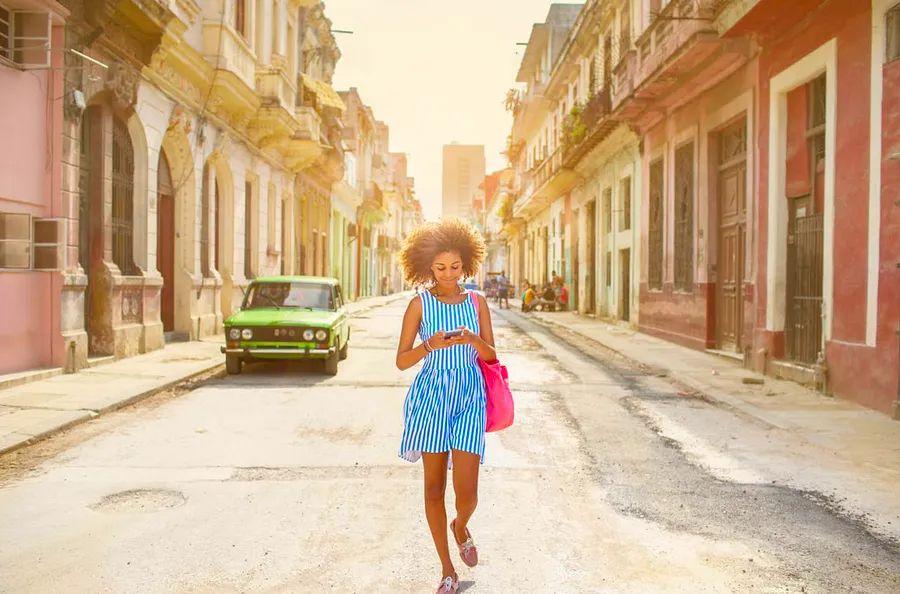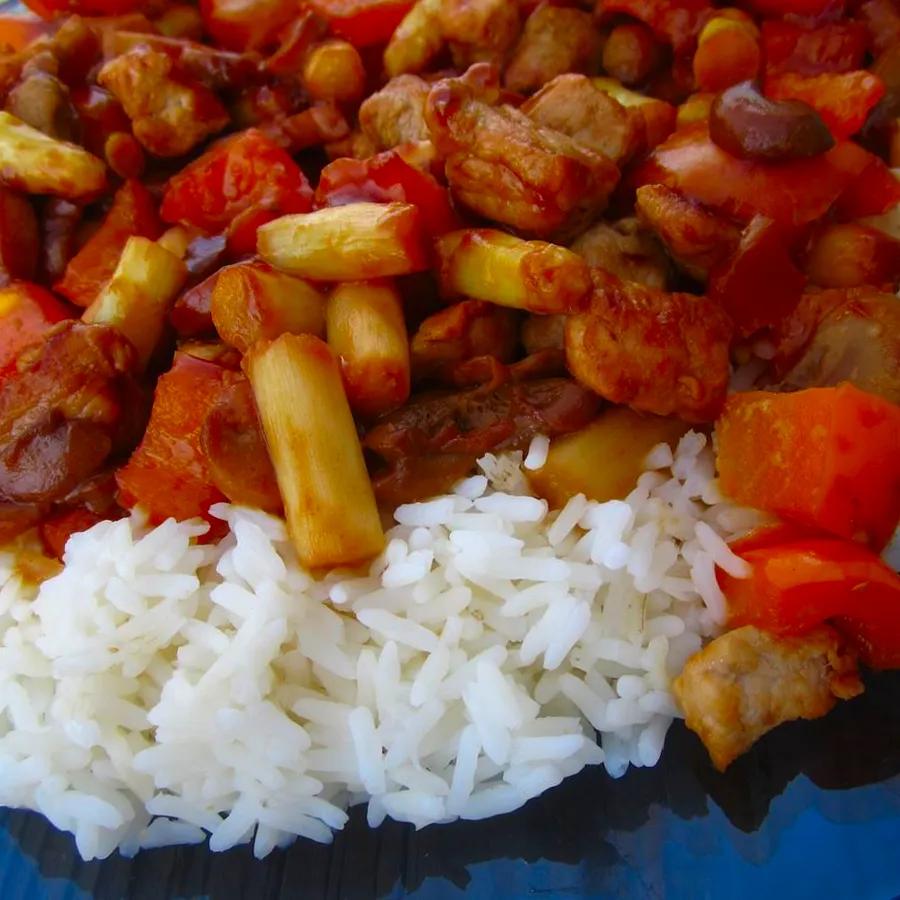20 essential tips for visiting Havana, Cuba

Despite its tropical allure, Havana can be a bit challenging for travelers.
A distinct economic environment, a bloated state bureaucracy, and years of isolation from the USA can create hurdles for even the simplest tasks.
However, while navigating the Cuban capital may present some unexpected challenges, it is seldom burdensome and never boring. Make your Havana experience seamless with our top 20 tips to keep in mind before you go.
1. Ensure you have proof of insurance
Although Cuba has a comprehensive state healthcare system, all visitors must possess medical insurance to enter the country, and you'll need to provide digital or printed proof of your coverage. Random checks occur at the airport; if you arrive uninsured, you'll be required to purchase a Cuban insurance policy on-site.
2. Complete an online immigration form beforehand
Being one of the last Communist states, Cuba comes with its share of bureaucratic processes. All travelers must fill out an online form called D’Viajeros, which includes immigration and health details. You can complete this form digitally up to 72 hours prior to your arrival, so be sure to add this to your pre-travel checklist.
3. Special regulations for US citizens
Due to the tense political ties between Cuba and the US, Americans face distinct regulations when traveling to Cuba. To visit, you'll need to apply for a travel license under one of 12 designated categories.
While there isn’t a specific category for vacations, visitors can often enter under the somewhat ambiguous “support for the Cuban people” category. Be sure to check out our comprehensive guide on the regulations for US travelers.
4. Ensure you have a tourist card
To gain entry into Cuba, every traveler must present a completed Tourist Card. This travel document is typically available through your airline and is often included in the cost of many tickets, but it's wise to confirm with your airline.
If your airline does not provide a Tourist Card, you can buy one from a Cuban travel agency, with prices ranging from US$50 to US$85. Additionally, citizens from twenty African and Asian nations need a formal visa to enter Cuba, so verify the requirements for your home country with your local Cuban representative before making travel arrangements.
 There’s some important paperwork you’ll need to sort out before your trip to Havana © julianpetersphotography / Getty Images
There’s some important paperwork you’ll need to sort out before your trip to Havana © julianpetersphotography / Getty Images5. It’s advisable to secure your accommodations ahead of time
By booking your lodging in advance, you not only ensure a place to stay but also have the advantage of paying upfront, reducing the amount of cash you need to carry – which is beneficial given Cuba's complex payment regulations.
Reserve a hotel through a trusted agency – Canada-based A Nash Travel offers some fantastic deals. If you’d rather stay in a casa particular (private homestay), utilize Dinogo Planet’s listings to reach out to owners directly via email or WhatsApp, or explore options on Airbnb.
6. Get informed about the new monetary system
Cuba's payment rules have long been perplexing, even for locals, and the situation has recently become even more complicated.
In January 2021, the country eliminated the convertible Cuban peso (CUC) and removed the US dollar from circulation in June 2021, resulting in severe inflation and a flourishing black market. This has led to a confusing dual economy.
The official currency is the Cuban peso (CUP), but many foreign currencies are also accepted, particularly by private businesses that require hard cash to purchase non-rationed items in special stores that accept Moneda Libremente Convertible (MLC) – essentially, freely convertible currency.
While state-run enterprises and banks operate using official exchange rates, private businesses typically offer better services and reflect the more advantageous black market rates.
When making purchases from private businesses – whether at a restaurant, casa particular, or taxi service – it's generally advisable to pay with foreign currency. Always confirm beforehand which currencies are accepted and the exchange rate for prices listed in pesos.
The euro is the most widely accepted currency and the favorite among Cubans. Canadian dollars and British pounds can also be used and exchanged, but it's best to steer clear of US dollars.
Upon arrival, it's wise to keep the majority of your funds in a foreign currency, exchanging only small amounts into pesos for minor expenses like museum admissions, concert tickets, and tips. There are also numerous free activities available to enjoy in Havana.
7. Choose the right clothing based on your itinerary
Cuba has a generally relaxed dress code. Jeans paired with a T-shirt or a button-up shirt are common for both men and women, although some Cuban women don vibrant rumba dresses for special events.
The main dress code applies in cinemas, theaters, nightclubs, and upscale restaurants, where men are expected to wear long trousers and shirts with sleeves or half-sleeves.
8. Familiarize yourself with Havana's local greetings
Like many major cities, Havana boasts a vibrant array of urban slang. A typical Habanero greeting among friends is qué bola, asere? – which can be interpreted as “how’s it going, man?” or “what’s up, buddy?”
The term asere has its roots in a Nigerian Igbo greeting, originally popularized by the Afro-Cuban Abakuá brotherhood.
This greeting has become a distinctive form of address in Havana; however, it's not used in Santiago de Cuba, where they prefer the term compay.
 In Cuba, music fills the air—earplugs are advisable for those who are light sleepers © Lena Wurm / Shutterstock
In Cuba, music fills the air—earplugs are advisable for those who are light sleepers © Lena Wurm / Shutterstock9. Consider getting some high-quality earplugs
With the bustling crowds, narrow streets, and a love for vibrant live music, Havana can be quite noisy. Sounds from the street and nearby rooms often seep into your accommodation.
If you’re sensitive to noise, it’s wise to pack earplugs or choose a quieter area in Havana. The eastern part of Vedado and the diplomatic district of Miramar offer a more relaxed atmosphere, with a handful of small hotels and casas particulares, but fewer nightlife options.
10. Streets frequently have two names
Many streets in Havana have two names: one modern, marked on maps and signs, and another pre-revolutionary name commonly used by locals. This can lead to confusion if you decide to explore Havana's diverse neighborhoods on foot, especially when locals provide directions using the older names.
Certain streets are consistently referred to by their historical names—like Paseo de Martí, Havana’s main tree-lined avenue, which is always called El Prado.
Likewise, Havana’s most renowned road, Avenida de Maceo, is widely known as the Malecón, and the main shopping street in Centro Habana (Avenida de Italia) is fondly referred to as Galiano.
11. Understand the unique customs for queuing in Cuba
Cubans often face long waits in dull lines, leading them to create a system of queueing that doesn’t require physical standing. In a Cuban queue, you arrive at the bakery, clinic, or visa office and shout quien es último? – meaning “who’s last?” – to the gathered crowd.
If all goes well, someone within a quarter-mile radius will respond to your polite question with the word yo (me), and that individual will be your reference point. As long as they’re nearby, you can stroll, meditate, or grab an ice cream. Just be ready when they’re called up – that means it’s your turn!
12. Don’t hesitate to ask questions multiple times
Due to Cuba's cumbersome bureaucracy, getting clear answers to simple inquiries can be a challenge, and even official sources might provide incorrect information. Politely inquire and consult at least five different people before making significant choices.
Can you settle that taxi fare in euros? Is that casa particular from last year truly out of business? The reality often lies somewhere between the first and last responses you’ll encounter.
13. Learn to distinguish between state and private enterprises
For first-time visitors, distinguishing between state-run and private enterprises in Cuba can be tricky. Both have their advantages and disadvantages, but opting for private businesses means your money goes directly to the Cuban people, and they often provide higher quality service.
In terms of dining, if the food is delicious and the service is warm and welcoming, you’re likely at a private restaurant.
Regarding shops and galleries, official retailers selling items like cigars and rum are usually state-owned, while unique shops offering art, secondhand books, and handmade crafts tend to be privately owned.
 Havana is generally a safe destination for travelers, and applying basic travel common sense can enhance your safety further © Lesinka372 / Shutterstock
Havana is generally a safe destination for travelers, and applying basic travel common sense can enhance your safety further © Lesinka372 / Shutterstock14. Keep your valuables concealed to deter pickpockets
Havana is generally a safe city with little violent crime. While pickpocketing does occur, it’s not widespread and can be easily prevented with some basic precautions.
Consider wearing a money belt, utilizing safe deposit boxes in your hotel room, and avoid displaying cash in public. It's also advisable not to keep your wallet in your back pockets where it's easily visible.
15. Avoid exchanging money on the street
Cuba has a flourishing black market for currency exchange, but steer clear of unlicensed street traders. Engaging with them can lead to receiving forged notes and other scams.
16. Pack your own medications
While Cuba boasts a solid healthcare system—having developed and distributed three COVID-19 vaccines—it often faces shortages of imported medicines. Make sure to bring any necessary prescriptions and basic pharmacy items like ibuprofen and paracetamol.
If you wish to donate medicines to the Cuban people, you can bring in up to 10kg (22lb) of medical supplies tax-free, but ensure they are packed in a separate bag.
Instead of distributing donations randomly, it’s advisable to leave your contributions with a reliable Cuban contact for distribution (if you’re staying in a casa particular, consider asking the owner).
 Purchase your cigars from bars and state-owned stores, not from street vendors © Salvador Aznar / Shutterstock
Purchase your cigars from bars and state-owned stores, not from street vendors © Salvador Aznar / Shutterstock17. Steer clear of dubious cigars and other scams
Scams by jineteros (hustlers) are common, often starting with friendly small talk followed by tales of extremely cheap cigars or expert guiding services. While jineteros can be persistent, they rarely pose a threat; a polite but firm no gracias usually suffices to deter them.
Generally, cigars sold on the street are often factory rejects or fakes. For authentic cigars, purchase them from state-run outlets like the Casa del Habano chain.
Guides can be unpredictable, and those who overly push their services often fall into the latter category. A better option is to connect with the reputable team at Free Walking Tour Havana.
18. Watch out for sidewalk hazards
Havana’s sidewalks are riddled with both obvious and hidden obstacles. Fruit carts, uneven paving stones, dog waste, and open manholes are just a few of the dangers that could disrupt your pleasant evening walk. If you’re prone to wandering while daydreaming or staring at your phone, be especially cautious in Havana.
19. Bring your own toilet paper
While hand sanitizer has become more readily available since the pandemic, toilet paper is still scarce. Public restrooms seldom stock supplies, so it’s wise to carry your own roll or head to four- or five-star hotels if you're in need.
20. Avoid drinking the tap water
Havana's tap water is unlikely to be lethal, but it can certainly cause some stomach discomfort or mild queasiness.
Bottled water is readily available and affordable, but to minimize plastic waste, consider investing in a travel water bottle with a built-in filter before your trip, allowing you to refill it at your accommodations (sadly, there are no public water fountains throughout the city).

1

2

3

4

5
Evaluation :
5/5